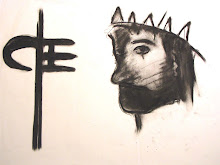metaphysics, ontology -- going after the whole
skepticism -- a focus on ignorance
empiricism -- a focus on experience
logic, rationalism -- a focus on reason
moral philosophy -- the ethical perspective
synthesis -- holism -- assembling what is known
historicism -- a focus on time, development, evolution
rhetoric/linguistic philosophy -- a focus on language
biophilosophy -- a focus on life, the life form, the psyche-soma
existentialism -- a focus on the lived immediacy of being
psychology -- a focus on the self
social philosophy -- a focus on politics
Perhaps we can add the philosophy of mind and philosophy as apologetics and philosophy across cultures -- or perhaps several of these collapse together and leave some lesser number of basic stances.
Perhaps we can add the philosophy of mind and philosophy as apologetics and philosophy across cultures -- or perhaps several of these collapse together and leave some lesser number of basic stances.
 |
| Peter Simons |
These include:
1 --- the progress model --- more narrowly the cumulative process model -- philosophy makes progress like science by cumulative achievement; examples include logical positivism, positivism, rationalism.
Simons comments that this model is so easily falsified by the record of setbacks, dark ages and regressive epochs in the history of philosophy, that it is not worth defending.
Franz Brentano, for a time a Catholic priest, held that philosophy was more like the fine arts than the sciences, since art also passes through degenerate periods. He offered:
2 --- the fine arts model
 |
| Franz Brentano |
Brentano really offers two models here: philosophy as regress rather than progress; and philosophy as leaving and returning to the same place.
3 --- the degeneration model
4 --- the cyclical model
Hegel initiates talking about philosophy as fueled by an underlying logic of oppositions, standstills and preservations subsequently taking place at a higher level. Hegel unlike Brentano places philosophy higher up than religion and claims that philosophy not only makes progress but achieves its goal, wisdom. Philosophy ceases to be the love of wisdom and becomes wisdom itself.
Simons offers three further ideas:
5 --- the golden age model -- as in Heidegger, Confucius, and in Vedanta philosophy, where a past age serves as the standard, which may be the age of the Pre-socratics, or Hoelderlin's poetry, the age of Wen and Wu, or the age of Vyasa or Homer.
6 --- the Enlightened One model -- based on an apotheosis of a teacher, e.g. Socrates, Plato, Aristotle, Wittgenstein, Derrida.
7 --- the brave new world model -- proposing to break new ground (Descartes, Hume, Husserl) and begin philosophy from a hitherto unthought standpoint.
Progress, regress, cyclical motion -- or back to a golden age, or forward to a new eden -- or raising some teacher to a status above all others ...
I am just trying to set these out as first stages in defining the problem -- first, basic stances in philosophy -- second, some options for regarding the history of philosophy.

No comments:
Post a Comment